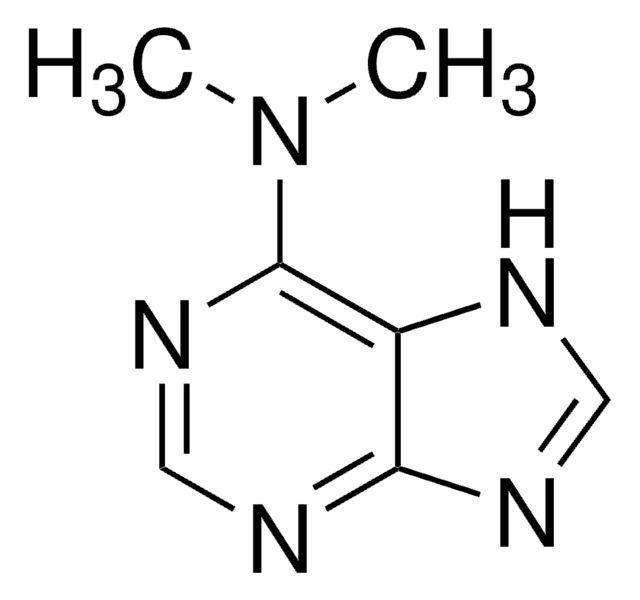407953
Ionomycin, Calcium Salt, Streptomyces conglobatus in Solution
Useful in cell activation experiments when calcium dose-response data are not required. The solid form of this compound is also available.
Synonym(s):
SQ23377 calcium
Sign Into View Organizational & Contract Pricing
All Photos(1)
About This Item
UNSPSC Code:
12352200
Recommended Products
Quality Level
Assay
≥90% (HPLC)
form
liquid
manufacturer/tradename
Calbiochem®
storage condition
OK to freeze
avoid repeated freeze/thaw cycles
desiccated (hygroscopic)
protect from light
shipped in
dry ice
storage temp.
−70°C
General description
Useful in cell activation experiments when calcium dose-response data are not required. The solid form of this compound (Cat. No. 407952) is also available.
Biochem/physiol Actions
Cell permeable: yes
Packaging
Packaged under inert gas
Warning
Toxicity: Irritant (B)
Physical form
A 10 mM (2 mg/268 µL) solution of Ionomycin, Calcium Salt, Streptomyces conglobatus (Cat. No. 407952) in DMSO.
Reconstitution
Following initial thaw, aliquot and freeze (-70°C). Aliquots are stable for up to 6 months at -70°C.
Other Notes
Dupuy d′Angeac, A., et al. 1993. J. Cell Physiol.154, 44.
Lee, H.C. 1993. J. Biol. Chem.268, 293.
Lee, H.C. 1993. J. Biol. Chem.268, 293.
Legal Information
CALBIOCHEM is a registered trademark of Merck KGaA, Darmstadt, Germany
Signal Word
Warning
Hazard Statements
Precautionary Statements
Hazard Classifications
Acute Tox. 4 Oral
Storage Class Code
11 - Combustible Solids
WGK
WGK 3
Flash Point(F)
Not applicable
Flash Point(C)
Not applicable
Certificates of Analysis (COA)
Search for Certificates of Analysis (COA) by entering the products Lot/Batch Number. Lot and Batch Numbers can be found on a product’s label following the words ‘Lot’ or ‘Batch’.
Already Own This Product?
Find documentation for the products that you have recently purchased in the Document Library.
Customers Also Viewed
Yuetong Wang et al.
Cell reports, 36(6), 109516-109516 (2021-08-12)
Although tumor-infiltrating lymphocytes (TILs) maintain their ability to proliferate, persist, and eradicate tumors, they are frequently dysfunctional in situ. By performing both whole-genome CRISPR and metabolic inhibitor screens, we identify that nicotinamide phosphoribosyltransferase (NAMPT) is required for T cell activation. NAMPT
Hongying Fu et al.
Nature communications, 11(1), 1050-1050 (2020-02-28)
Organisms respond to tissue damage through the upregulation of protective responses which restore tissue structure and metabolic function. Mitochondria are key sources of intracellular oxidative metabolic signals that maintain cellular homeostasis. Here we report that tissue and cellular wounding triggers
Our team of scientists has experience in all areas of research including Life Science, Material Science, Chemical Synthesis, Chromatography, Analytical and many others.
Contact Technical Service

